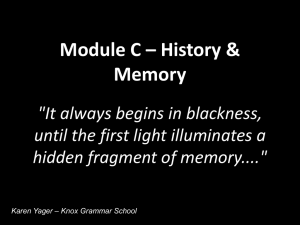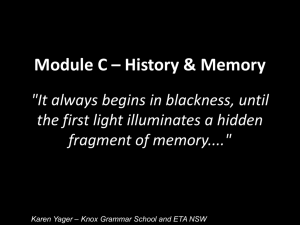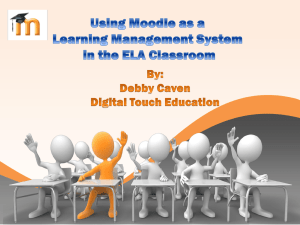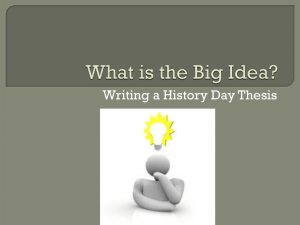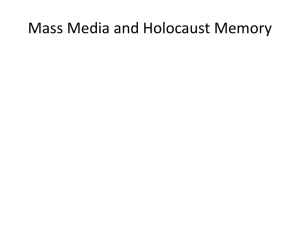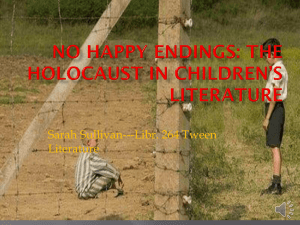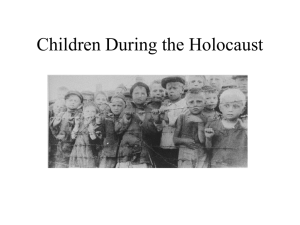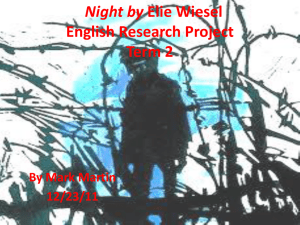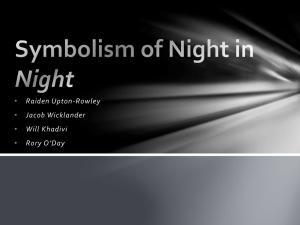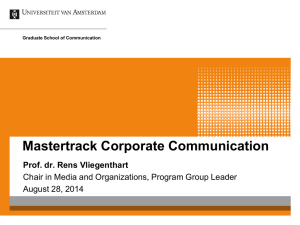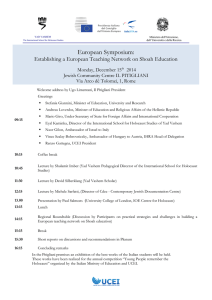Module C – History & Memory
advertisement
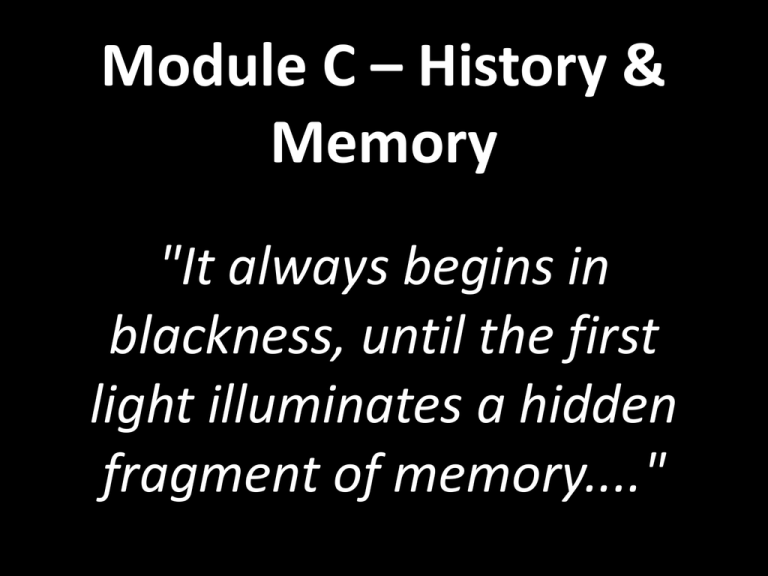
Module C – History & Memory "It always begins in blackness, until the first light illuminates a hidden fragment of memory...." Rubric Representations of events, personalities or situations. Evaluate how medium of production, textual form, perspective and choice of language influence meaning. Relationships between representation and meaning. Rubric Relationships between individual memory and documented events. Analyse and evaluate the interplay of personal experience, memory and documented evidence How history and personal history are shaped and represented Marking Guidelines In your answer you will be assessed on how well you: demonstrate understanding of and evaluate the relationship between representation and meaning organise, develop and express ideas using language appropriate to audience, purpose and form Feedback from Marking Centre Many stronger responses demonstrated an awareness of the constructedness of texts and how the choice of form and its associated language features connected with the composer’s purpose and context. Skilful analysis and seamless integration of the prescribed text and well-chosen text Judiciously selected textual evidence In weaker responses, candidates superficially referred to aspects of history and memory. Representation The act – constructedness Medium of production and form Language/filmic/visu al/aural techniques Reasons for these choices Meaning conveyed Memory Our ability to store, retain, and recall information and experiences. Unreliable and selective; altered by experiences, such as trauma Process by which we make sense of our lives Cultural and personal history ‘Stories are the lifeblood of a nation’ Garth Boomer. Memory Vital to our understanding of the past. Most people derive their values, their sense of justice and sense of identity in this world, from memories of past events, situations and relationships with others. History Documented events History according to Hutchenson is faction or His/tory. It must always be questioned and examined to uncover who recorded the history and in what context. Unreliable and selective George Orwell -1984: “Who controls the past … controls the future: who controls the present controls the past.” ‘History burnishes particulars, brushes them clear of individual faces…everything personal, individual, is swept away in time’ Anne Roiphe, The Legacy of Memory. Perspective Baker as an historian is sceptical of his mother’s stories as they at first they cannot be confirmed by historical records. ‘Does history remember more than memory?…that I never believed her, that I only recognise suffering in numbers and lists and not in the laments and pleas of a human being, of a mother, screaming for acknowledgement?’ Event The Holocaust was the murder by Nazi Germany of six million Jews. Between 1941 and 1945, the Nazis established six extermination camps in former Polish territory-Chelmno, Belzec, Sobibor, Treblinka, Auschwitz-Birkenau and Majdanek. Holocaust: Related Texts Picture Books: Rose Blanche, Erika’s Star, Star of Fear, Star of Hope Films: Jacob the Liar, Schindler’s List, Web Sites: www.remember.org Anne Frank’s Diary Night – Eli Weisel Fig Tree – Arnold Zable Music: http://fcit.usf.edu/HOLOCAUST/resource/music.htm Poetry: http://www.datasync.com/~davidg59/holo_art.html The Book Thief – Marcus Zuzak After The Holocaust – G.F.Alford We saw the spirit of the Holocaust in Cambodia, in Tamil, in Kashmir, at My Lai. Wherever there is a refugee camp, faces pressed against the wires, the Holocaust is there” (Anne Roiphe, ‘The Legacy of Memory’). Situation Being a child in war A victim of war or persecution A child of survivors of a traumatic, tragic situation Incarceration Genocide Related texts Kim Phuc – Vietnam Stolen generation: Archie Roach; Ruby Hunter/Rabbit Proof Fence Paintings: Guernica; Stolen Footprints - Morrderrwarr One Day in the Life of Ivan Denisovich War poetry: Wilfred Owen, Bruce Dawe Refugee stories Ideas Loss of innocence Post-traumatic stress disorder/Depression Flawed humanity Courage in the face of adversity Loyalty Loss of faith and hope Chance Resilience Response Conceptual understanding: - The thesis or line of argument - In response to the question - The framework and drivers for extended responses - Integrates the response - Support and challenge Developing a Thesis Strong opening paragraphs that introduce clear lines of argument or theses that directly address the question. A response that is driven by a thesis connected to the question. Each successive point must further the thesis through textual analysis and support. Support or even challenge then thesis through the analysis of the text/s. Precise topic sentences that are connected to and build on the thesis. Theses Overarching through the question to specific lines of arguments. Supporting the thesis with the reasons why the student has arrived at this point of view. At least two – three supporting arguments used to further the thesis that addresses the question in the essay. Representation – History/Memory interplay – event or situation ideas Integration Making connections between the texts through: - Furthering or challenging - Act of representation - Event/Situation - History/Memory Connecting words: Furthermore, alternatively… Documented evidence is not enough to truly understand history; it is important to know the personal stories of individuals in order to fully appreciate the past. How history is shaped and represented impacts on our response to events of the past. Documented evidence is often official, seemingly rational and impersonal; memory is the power of retaining and recalling past experience where the facts are filtered through the personal memories and can have a far greater emotive impact. The Fiftieth Gate represents an event - the Holocaust and it uses carefully selected techniques which gives us insights into the relationship between history and memory. The event is filtered through the memories of Baker’s parents while he seeks to relate them to the official explanations.
